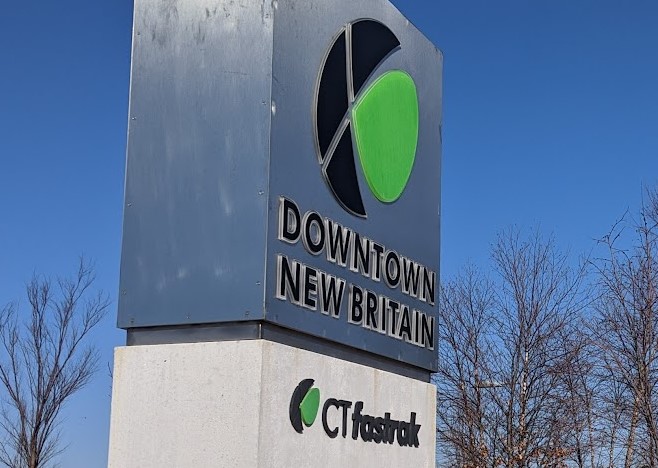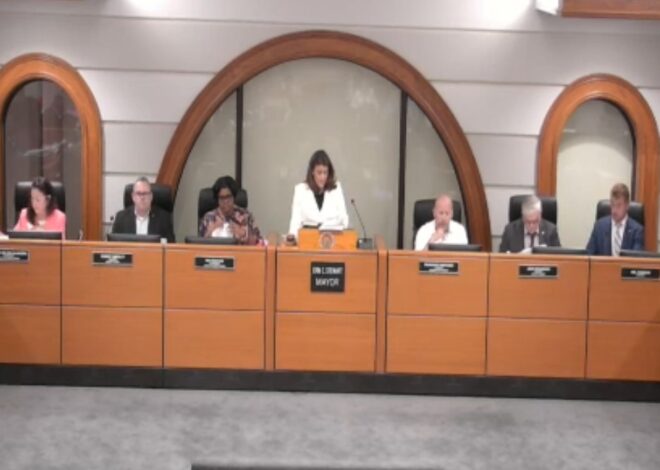Connecticut’s Education System Found Unconstitutional But Remains Unremedied
By Renae Reese
Connecticut Center for a New Economy, Executive Director

Many students in the New Britain public schools are what the Connecticut State Department of Education calls “English Language Learners,” who need their English language skills boosted so they can learn the other subjects. Many students in New Britain are eligible for the benefits of special education. And many students in New Britain are from families whose earnings are below the federal poverty level, a measure that correlates consistently and disturbingly well with standardized test scores, so well that these scores are effectively measures of socioeconomic status. Eleven years ago the Connecticut Coalition for Justice in Education Funding (CCJEF), led by the indomitable Dr. Diane DeVries, who passed away nearly a year ago, sued the state of Connecticut because New Britain in particular, and most other towns, were not getting enough resources from the State to adequately fund public schools. The basis for the innovative CCJEF lawsuit was that too many Connecticut school districts were not getting the resources they needed, because they were entering a political competition every year for their piece of a pie that was just too small.
Judge Thomas G. Moukawsher’s exhaustive verdict in CCJEF v. Rell, delivered last week, has been described by Connecticut media and by education and legal scholars with puzzlement and alarm. Most agree with his finding that Connecticut’s severe economic inequity is perpetuated by the absurd way the State distributes its education dollars. Moukawsher took aim with the way the Education Cost Sharing (ECS) formula is rigged.
CCJEF advocates are disappointed that Moukawsher did not find that the State spends too little, overall, on public education. The result for CCJEF is a victory without a remedy. “I was there when he read the decision,” said New Britain Board of Education President Sharon Beloin-Saavedra, a member of the CCJEF Steering Committee, “It was concerning that he did not find that we need more resources. He articulated a tale of two Connecticuts; some of our kids are having an enriching experience and some are not getting their needs met.”
Merrill Gay of the New Britain Board of Education and one of 24 CCJEF plaintiffs said, “It gives me hope that Judge Moukawsher found that we need a more rational system of funding our public schools, but it doesn’t seem very likely that the State will come up with more money.”
In 2015, New Britain Public Schools share of the ECS grant was $8,094 per pupil. Hartford’s 2015 share was $13,282 per pupil. That difference makes sense based on Hartford’s child poverty rate, highest in Connecticut at 47%, compared to New Britain’s 32%. But factors other than poverty affect the educational resources children need. Hartford and New Britain have comparable percentages of English language learners, 17% and 16%, and comparable percentages of special education students, 18% and 17%. No one thinks Hartford is over-resourced, but, according to Gay, “New Britain is one of the poster towns for educational funding inequity and is shorted $33 million a year under the existing ECS formula.” The case was filed in November of 2005, as Beloin-Saavedra was first elected to the New Britain School Board. Her tenure has been fueled by optimism that the lawsuit would one day bring necessary resources to the schools.
Sal Escobales, President of the New Britain Federation of Teachers and a biology teacher at New Britain High School said he and his fellow New Britain teachers could accomplish a lot with an infusion of state resources, but are adept at working in under-resourced schools. “We are being asked to do the impossible and we are going to do it, to the best of our ability. We don’t just teach, we serve.”
In addition to the indictment of unfair funding, there were other bewildering aspects to Moukawsher’s verdict that may end up driving appeals by the State while forcing CCJEF to simultaneously look for additional political remedies where this winning decision is less helpful. For instance, the judge found that the most severely disabled students cannot possibly be adequately served by public education and our investment in their needs is arbitrary. He found that teacher evaluations are too positive, though he offered no basis for comparison. He found that teacher evaluation should be pegged to student outcomes, despite rendering a decision that identifies many factors out of the teachers’ control, that affect outcomes. He found a need for more testing, to determine high school graduation. He is troubled by the fact that a third of state education dollars are spent on construction with no clear objectives.
“Some of the things the Judge has asked the State to consider have raised eyebrows.” said Beloin-Saavedra, who is clear that CCJEF was not about leaving out any students or punishing the teachers who, by the Judge’s main finding have been working in underfunded schools. “If we do in fact get more funding,” said Escobales, “I hope we can give teachers more opportunity to make learning better for kids. Money can fuel innovation in teaching. The conversation always revolves around bad teachers. The conversation never gets to ‘how do we support these teachers?’”
The General Assembly has 180 days to come up with a remedy, which will be just 62 days by the time their next session begins. Beloin-Saavedra and Gay would be encouraged if they started by fully funding the ECS statewide, which would cost about $600 million. Even though 39 years ago the Horton v. Meskill decision determined that dependence on local property tax created unconstitutional inequities in education funding, resulting in the creation of the ECS, most Connecticut towns still fund their schools primarily with property tax.
The Ct Center for a New Economy (CCNE) is a community organization that builds power, fights inequality and improves economic, social and racial justice for Connecticut’s unemployed and working people. They develop leadership and civic engagement among community, labor and faith groups in order to promote racial justice and immigrants’ rights, advocate for workers seeking employment, the right to bargain collectively for better wages and a voice on the job, support public education and job training, and expand access to health care and affordable housing.



